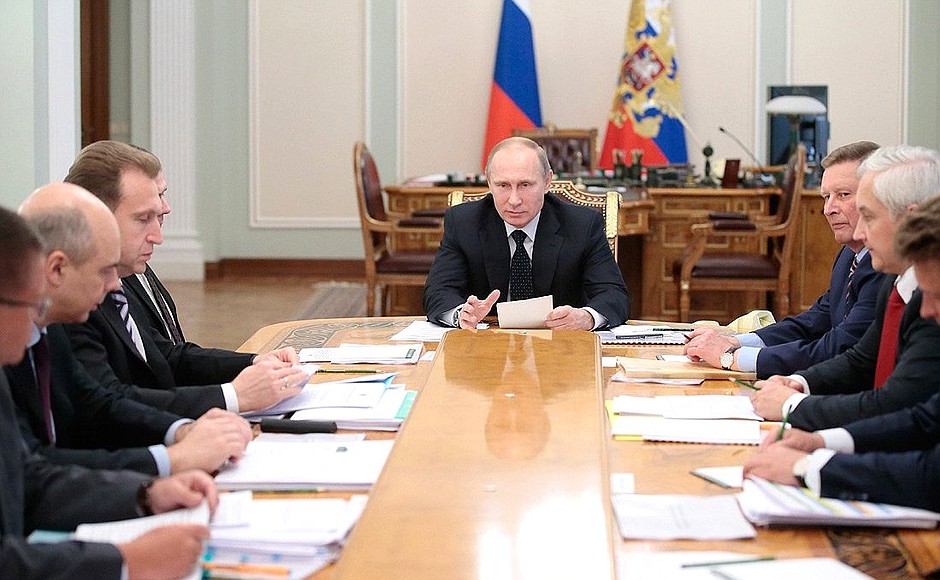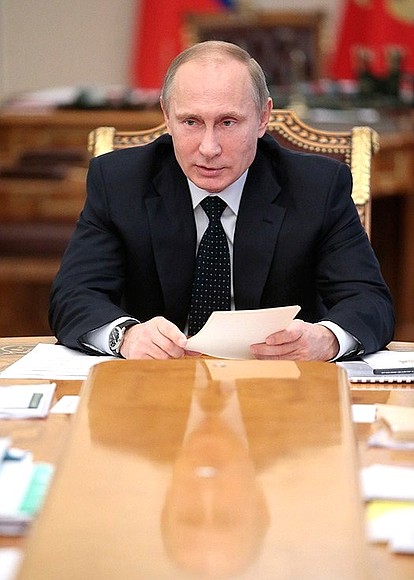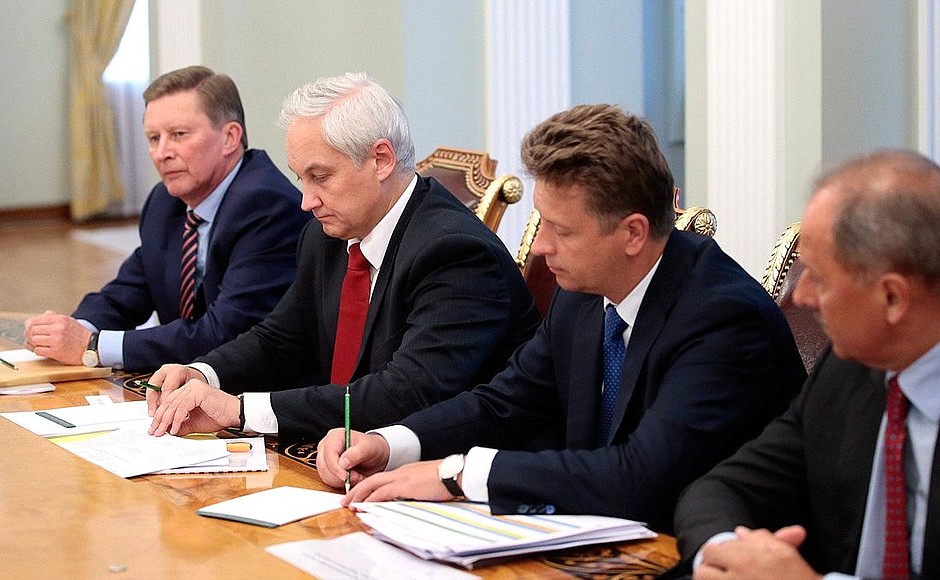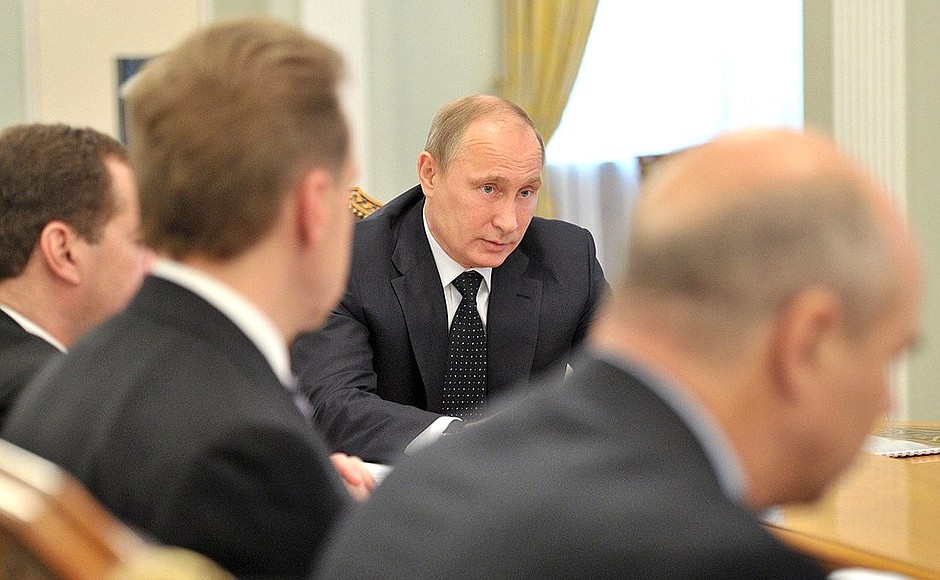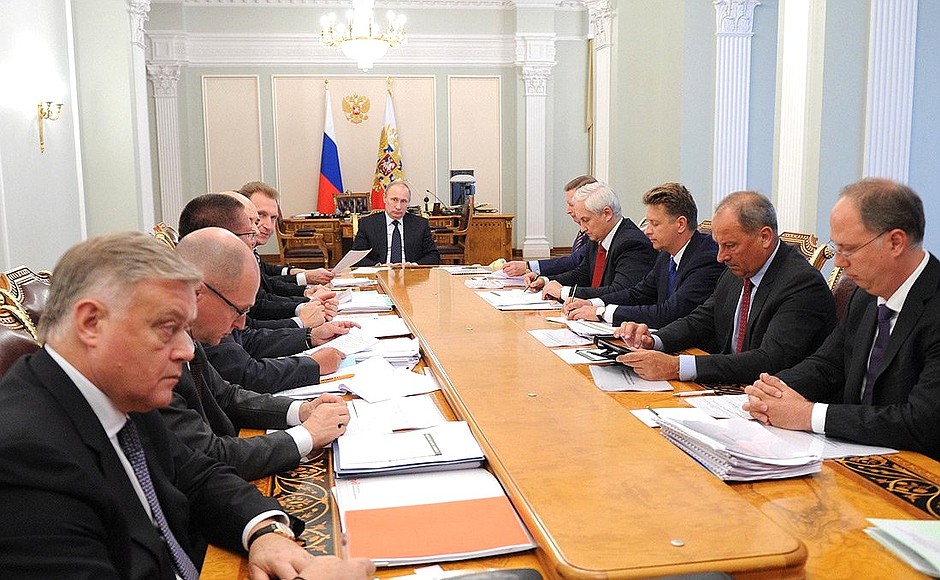President of Russia Vladimir Putin: Good afternoon, colleagues.
We are here today to discuss a financial and economic policy matter, namely, effective use of funds from the National Wealth Fund.
I remind you that along with the Reserve Fund, the National Wealth Fund is what we could call the ‘safety cushion’ for our country’s economy, social sector and entire financial system. This is the Fund’s primary and basic role, and it should be preserved. I want to make this point clear. Anyone who thinks that we can afford to spend all of the Fund’s money is seriously mistaken. It would not be wise to do this, and what’s more, the recent crisis manifestations of 2008, 2009 and 2010 showed us how necessary it is to have such instruments at our disposal. Fortunately, we have learned to use them effectively, not put them to waste, and draw on them at the right moment to produce the needed result. Moreover, we have increased these resources, and this is what gives us the opportunity now to examine at today’s meeting how they can be put to effective use.
As you are aware, many experts believe that the global economy has entered a period of long-term instability. International trade is becoming more complex, stock markets are unstable, and production risks are growing. These processes all have an impact on the Russian economy in one way or another.
In this situation, keeping reserves only in the form of securities or ‘real money’ in bank accounts is not enough, given the global economic risks that I just mentioned. What will happen with the main reserve currencies and with our reserves, which are denominated in these currencies and invested in foreign countries’ financial instruments? These are also all risks that we must reflect on in advance.
We need a diverse range of instruments for making use of our reserves, instruments that will ensure the levels of funds we need and will guarantee their profitability. This is what we need to examine today. The stronger our economic foundation, the more reliable protection our social sector and pension system will have against unforeseen events and market fluctuations.
What we must do now is to make active use of our internal growth factors. This is a matter we will come back to, not today, but we will discuss it very soon. I have discussed this issue with the Prime Minister on a number of occasions. We will examine it in broader format together with specialists from the Central Bank and members of the expert community.
We will concentrate on effective use of reserves today, but the biggest reserve of all is sustained and stable growth. Ensuring high economic growth rates – this is what we need to think about above all. Optional things are also important, but not decisive for the country’s overall stable economic development.
Coming back to the main item on our agenda today, we agreed that part of the Fund’s resources would be invested in major infrastructure projects, above all transport projects such as modernising the Trans-Siberian Railway and Baikal-Amur Mainline, as well as building the Central Ring Road around Moscow. Let’s discuss this today and look at possible other options too.
I remind you that as of November 1, 2013, the National Wealth Fund had a total of 2.845 trillion roubles [$87.8 billion]. The Fund’s current governing provisions allow for up to 40 percent of its funds to be invested.
I know that the Russian Direct Investment Fund has put together a solid portfolio of infrastructure projects. Big private organisations, including foreign ones, are showing interest in these projects and are ready to take part in them as co-investors. This is the case for projects in areas such as introducing energy-efficient technology, information technology, and building seaports, roads and pipelines.
I note that the Russian Direct Investment Fund has already raised around $9 billion in foreign capital for joint investment projects. Overall, this is a good result that demonstrates that the Fund is working effectively. I think these resources could be useful support for investment from the National Wealth Fund. Having ‘long’ resources, sharing the risks with private investors, and ensuring qualified expert evaluation of projects will help to guarantee that investment in Russian infrastructure produces good results.
Needless to say, we cannot forget the crucial projects we have already discussed at other meetings, above all developing the Moscow air transport hub, developing the potential of Siberia and the Far East, and so on.
Before we start discussing these issues, I remind you that this money we are talking about is our taxpayers’ money. This is our national wealth and we must use it very carefully and be very responsible about it. I hope that we will not just discuss solutions today, but settle on them and come to agreed proposals.
<…>
